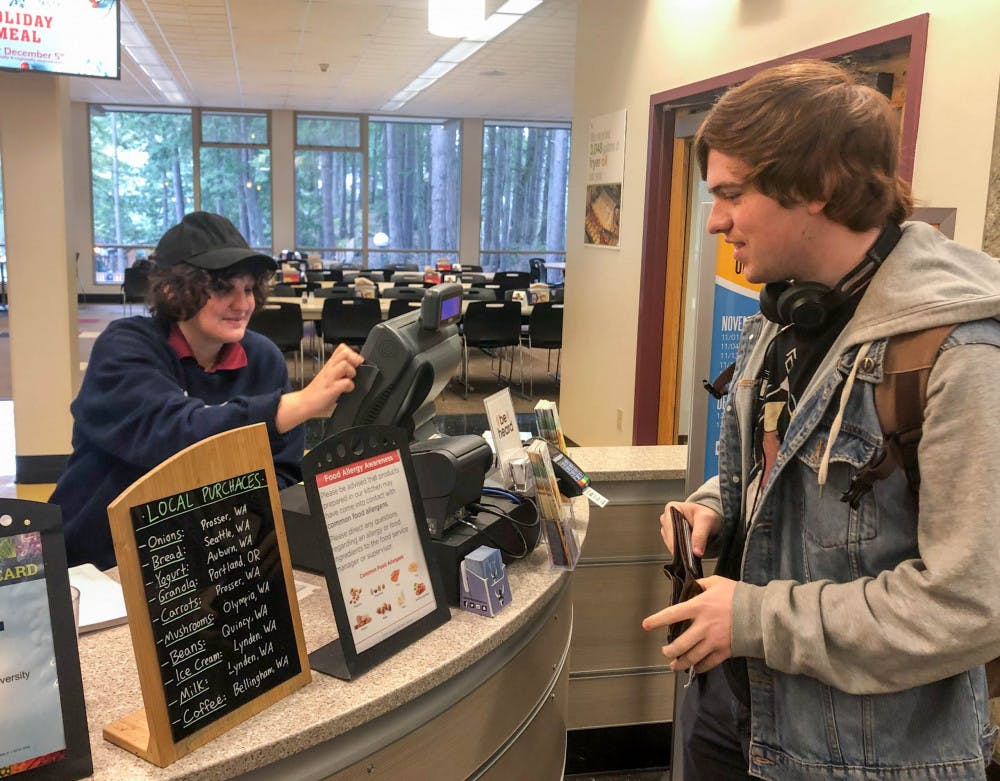This story has been edited for factual accuracy. A previous version of this story incorrectly attributed information to Office of Sustainability volunteer Molly Patterson. The correct attribution is to Feeding Western Coordinator Amber C.
Western partnered with national nonprofit Swipe Out Hunger in May 2019 in an effort to reallocate unused meals to students struggling with food insecurity.
The partnership was initiated by former Birnam Wood Resident Director Christan Urcia, and is run by Western’s Office of Sustainability, Aramark, University Residences and Feeding Western.
In the program's first quarter at Western, Swipe Out Hunger received donations from over 200 students, giving over 1,000 meals to students in need, according to the Housing website.
The nonprofit provided Western with marketing, guiding pitches and ideas for best implementation, Feeding Western Coordinator Amber C. said. Since the program began, Swipe Out Hunger has collected 2,000 donated swipes, Amber said.
“We just want to make college easier for students so they can focus on school, not where their next meal is coming from,” Amber said.
Swipe Out Hunger was started in 2010 by a group of friends attending the University of California, Los Angeles.
Tenille Metti Bowling, Swipe Out Hunger director of communications, said the nonprofit’s founder and CEO Rachel Sumekh was a student herself when she came up with the idea for the organization.
“She [Sumekh] and all of her friends felt really frustrated that they were nearing the end of the semester, and they had all these dining dollars on their meal plans and they were just going to go to waste, while they very much realized there were many members in the community who were facing food insecurity,” Bowling said.
Sumekh and her friends began taking food from the dining halls in to-go boxes and giving meals to needy students, Bowling said. Sumekh ran into issues with campus administration, but eventually she was able to work with student government and administration to begin the nonprofit, Bowling said.
The first university to adopt Swipe Out Hunger was Sumekh’s own UCLA. The University of Southern California followed closely behind. Swipe Out Hunger is currently partnered with 92 universities nationwide, Bowling said. By the end of 2019, Swipe Out Hunger will be partnered with over 100 universities and colleges, according to Bowling.
“Students often have a lot of meals left over at the end of the quarter, and Swipe Out Hunger is a great way for them to get involved and support other students,” Patterson said.
According to a study conducted by the Western Office of Survey Research, 8.6% of undergrad students classified as having very-low food security. Students classified as very-low food secure have a reduced GPA, on average, by .449 when compared to their food-secure peers. Students classified as having very-low food security see a 6% reduction in re-enrollment rates when compared to their food-secure peers, according to the survey.
The last day to donate unused meals for fall quarter here was Dec. 2, 2019, but the program will resume winter quarter 2020, according to the Western University Residences website.
A student can receive a maximum of 15 meals which amounts to around $135, Amber said.
To donate meals, students can fill out a donation form on the Office of Sustainability’s website. Students in need of meals can fill out a meals request interest form on the same website.






